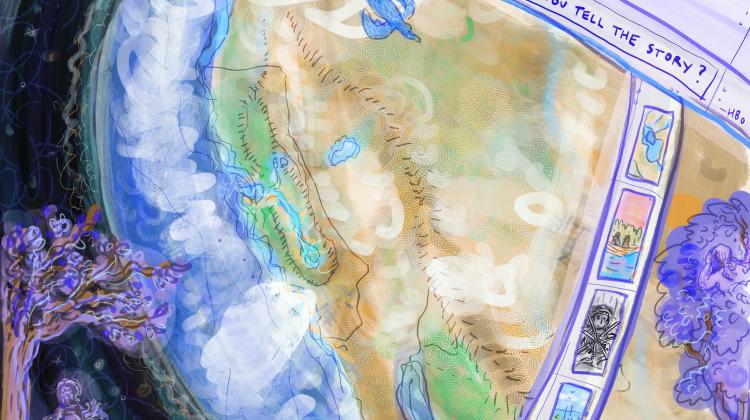Pa’ashi Park: Reclaiming the Lake of California’s Tulare Lake Basin, Guided by Two-Eyed Seeing

This project investigates nature-based climate adaptation as a form of reparative planning that responds to the environmental and social damage caused by land reclamation projects during the Manifest Destiny era. The research questions ask: what are the environmental and economic implications of restoring water and habitat in a drained lakebed, and how could such a project affirm the political rights and cultural connections that local tribes have to this landscape? The project's theory of change assumes that if Indigenous Knowledge is centered and put in conversation with planning scholarship around environmental justice, climate adaptation and mitigation, and sustainable watershed management, then the realm of political possibility around our shared water future will expand in ways that are more equitable to everyone, including water itself.
My goal with this project was to do "braided" planning and research that weaves together western and Indigenous epistemologies; I am a white American researcher and planner and I partnered with an Indigenous advisor to help me work with Tribal community partners on research project about their utopian vision for a climate resilient future on their traditional homelands. Visiting the region, which I did using RJRI funding, was essential for developing those relationships and gathering experiential evidence for my paper's argument. I spent significant time learning the history of the region to provide thorough context for why and how racialized power imbalances exist (in this region, that equates to the first people having last water rights despite a legal doctrine of "first in time first in right"), and why there is a need for reconciliation and repair. I then focused on developing a potential planning strategy for the community to use to develop their vision further, balancing the need for community agency and self-determination for the Tribe with the political importance of coalition building among a demographically complex public to make the Tribe's vision a reality.
Led by: Hazel O'Neil (MCP '24)
Geography: Tulare Lake basin, Kern County, California


